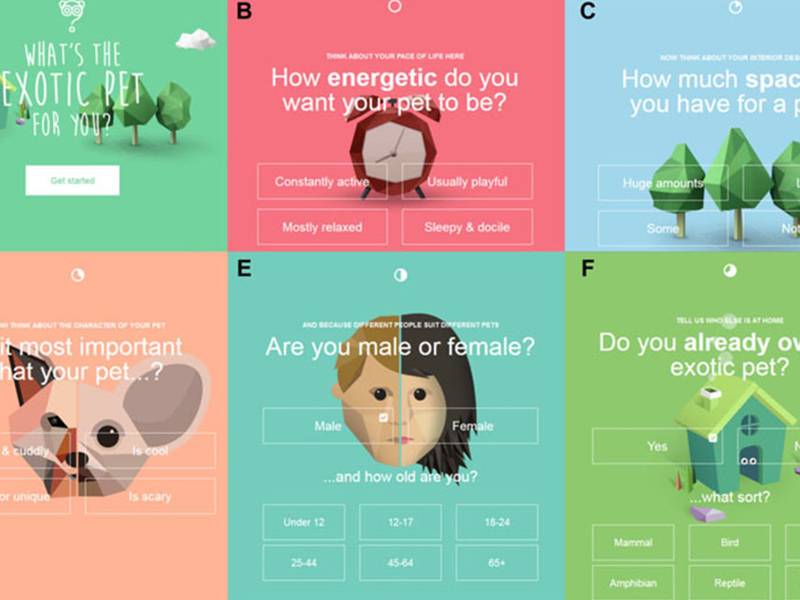
The global wildlife trade is a growing threat to biodiversity, species conservation and animal welfare. A major driver is consumer demand for exotic pets, and there have been calls for information campaigns to combat this. We created a novel, online survey to assess whether such campaigns could be effective. Our website “matched’ individuals with an exotic pet, and asked them to rate how likely they were to purchase one. We manipulated the information shown about each pet, giving either a “control” statement, describing the species’ diet, or one of four types of “treatment” statement describing zoonotic disease, animal welfare, legal or species conservation consequences. Respondents shown disease or legality information had a 39% reduced probability of selecting higher purchase likelihoods. Information on welfare and conservation impacts did not significantly lower purchase likelihoods. Information campaigns may reduce demand for exotic pets, particularly if focused on zoonotic disease and legal consequences.



